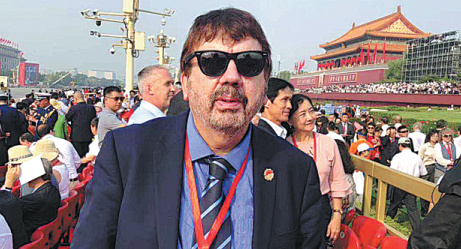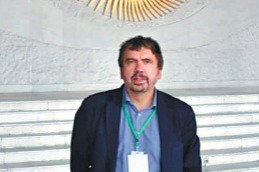The genuine article


Graham said her brother was "hugely impressed with China and developed a real love of the country; so much so, he was keen to learn and speak Mandarin and immerse himself in the Chinese way of life."
His job was also "a chance to travel and explore parts of China that Westerners rarely have the chance to see and to interact with people of different political persuasions, allowing him to gain a perspective of the real China and the misunderstandings of Western countries", she said.
Zhou, the editor-in-chief, compares Moody with Edgar Snow, a US journalist who lived in China for 13 years and produced the most important Western reporting on the Communist movement in China in the country before 1949, when the People's Republic of China was founded.
"Through his works, Moody showed the true picture of China, explaining the country and its people to the rest of the world, just like Edgar Snow," he said.
"Currently, there is an 'understanding deficit' of China, and it matters to the entire world to understand more of China."
Like Snow, Moody was intrigued by China before he arrived in the country, and was not an expert on it.
Jaspan, the publisher, said Moody's "attitude to China and the Party (CPC)… changed from an early skepticism to a gradual and increasing respect for what the country had achieved economically, including taking so many people out of poverty".
"The enormous progress that China has made in terms of pulling its people up from poverty became the defining issue for him, I believe," Jaspan said.
Wang Huiyao, president of the Center for China and Globalization in Beijing, who knew Moody for nearly a decade, referred to him as "Edgar Snow in the New Era".
"An Englishman who comes a long way to China, strives to report the real China to the world, and finally dies here," he said. "I'm greatly touched by his spirit of internationalism."
He said both Snow and Moody spent their years in China seeking facts firsthand.
"Snow went to Yan'an (Shaanxi province), seeking to better understand the CPC. Moody traveled across China seeking to understand the key issues it was dealing with and wrote in-depth stories about them, presenting a complete and true picture of the country," he said.
"They both had a deep understanding of China. They both told the world about China in a way that was readily understandable to global audiences," he said. "Moody's stories were based on real-life experience in China and a great understanding of Chinese people."
Moody's writing was not without its critics, even among his friends. In a diary entry in October 2020 he referred to a "furious row" with a close friend about China.
"What I cannot stand is that he is completely ignorant of this place but just talks over me," Moody wrote.
Wang said many non-Chinese arrive in China with preconceptions, as was the case with Snow and Moody, but their attitudes changed over time as they better understood the country.
"What this says is that anyone with a conscience and rational understanding, who is willing to discard pride and prejudice and look at China objectively, can form a correct understanding of the country and will draw positive and optimistic conclusions about its development," Wang said.
Shankar said Moody's death has deprived the world of an insightful book on China that his colleague could no doubt have written.
Wang said that although Moody did not have a book like Snow's Red Star Over China to his name, what he did produce in his copious journalistic writings would have a similar global influence.
"His body of work would fill a number of books. And, of course, he had tools at his disposal that Snow didn't, such as the internet and social media, which amplified the influence of his work."





































